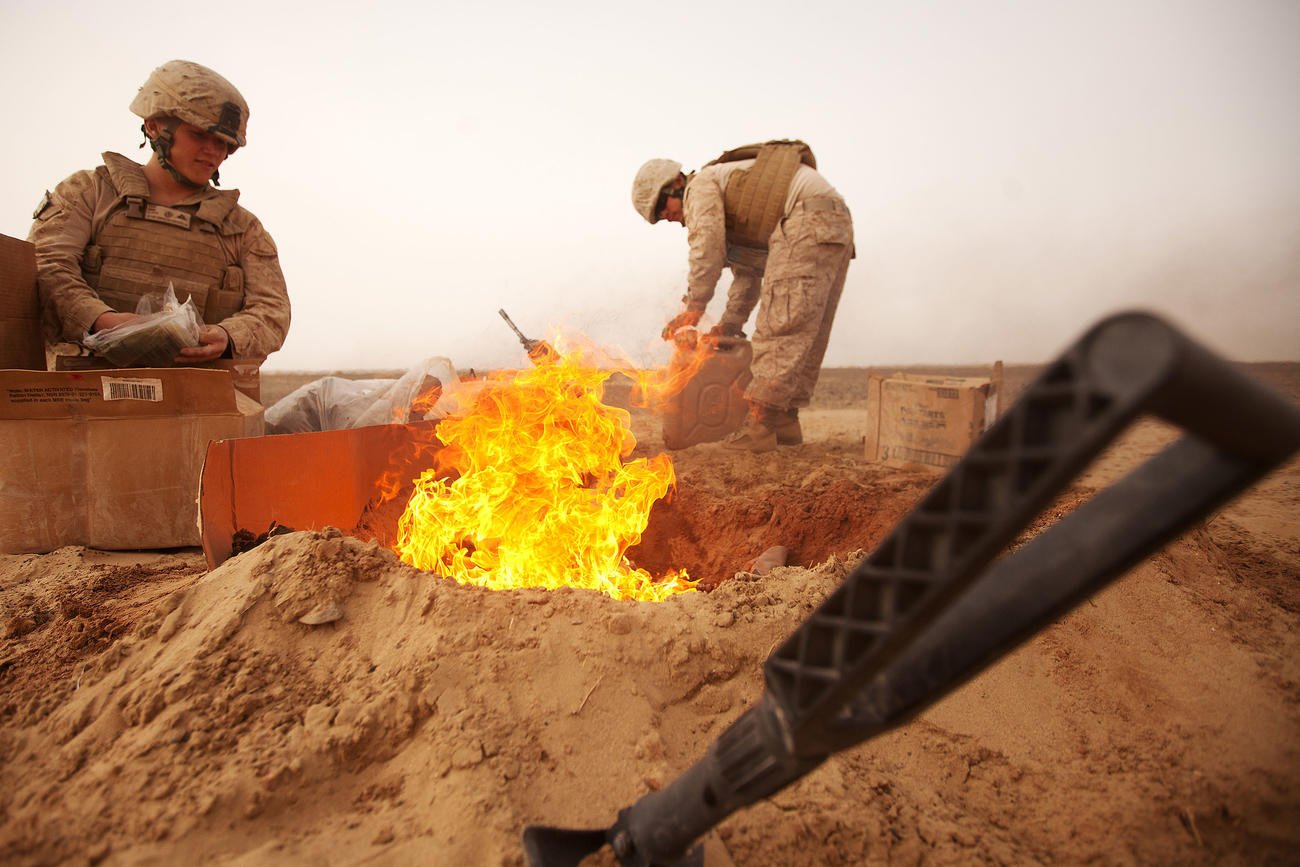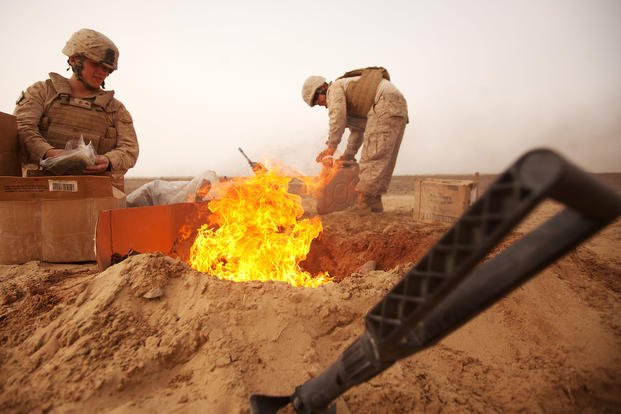

Two veterans have filed a class-action lawsuit against the Army for refusing to classify illnesses linked to burn pit exposure as combat-related, a designation that would make their medical retirement pay tax-free.
Retired Sgt. 1st Class Kyle Smoke and retired Lt. Col. Jennifer McIntyre filed suit Oct. 15 in the U.S. District Court in Washington, D.C., over the retirements they were awarded after being exposed to burn pits during their deployments to Iraq, and Afghanistan in McIntyre’s case.
According to court documents, Smoke has debilitating asthma that rendered him unfit for duty, while McIntyre was diagnosed with metastatic breast cancer that has spread to her liver and lymph nodes.
Read Next: Live Election Updates: What Experts Say Veterans and Their Families Should Know on Election Day
Both conditions are considered by the Department of Veterans Affairs to be caused by exposure to burn pits.
In Smoke’s case, the Army’s informal Physical Evaluation Board, or PEB, ruled that the soldier should be medically retired for his condition but that the illness was not the result of a combat-related injury.
A formal board disagreed, saying that the disability was combat-related, caused by an “instrumentality of war” — the burn pits that were used in wartime locations where proper refuse disposal was a challenge. A board member disagreed with that assessment, and a higher adjudicating body, known as the Army Physical Disability Agency, or PDA, ruled that Smoke’s illness rated medical retirement but that it was not combat-related.
The Army later approved Smoke’s asthma claim for Combat-Related Special Compensation, saying the disease was a “verified disability as combat related due to an Instrumentality of War,” according to documents.
Nonetheless, Smoke receives regular medical retirement pay and must pay taxes on it.
McIntyre retired from the Army after 19 years, her informal PEB concluding that her disease was service-connected but not combat-related. The formal PEB upheld this conclusion, despite her argument that her cancer was diagnosed in the line of duty in a combat zone.
The PDA upheld that decision, concluding that burn pits don’t automatically constitute an instrument of war.
The soldiers argue the burn pits should be considered as wartime necessities, given that there were few other options for waste disposal in the combat zones. And they argue that those medically retired since passage of the PACT Act — 10,000 Army soldiers in fiscal 2022 alone — should not be paying taxes on their benefits.
“The Army [Physical Evaluation Board] has a systemic practice and policy of denying combat-related findings for medical retirement purposes for unfitting PACT Act Conditions on the basis that military burn pits do not qualify as [instruments of war],” their attorneys wrote in court filings.
The Army’s practice of medically retiring soldiers for PACT Act conditions is contrary to the law, they added.
“The Army’s refusal to classify burn pits as instrumentalities of war during the Disability Evaluation System process ignores that the Department of Defense instruction only defines military burn pits in context of combat, which is uniquely particular to the military,” National Veterans Legal Services Program Senior Managing Attorney Esther Leibfarth said in a statement Oct. 30.
Burn pits were used in Iraq, Afghanistan and elsewhere to incinerate garbage generated at military installations overseas, including plastics, medical waste and industrial refuse.
The PACT Act, signed into law in August 2022, expanded health care and benefits for post-9/11 veterans exposed to the pits and other environmental hazards on those installations. It designated roughly two dozen diseases and associated illnesses as presumed to be connected to military service, paving the way for affected veterans to receive expedited health care and disability compensation.
The attorneys cited the PACT Act as supporting their argument that the conditions are combat-related and that Defense Department instructions say that if a disability was incurred “during any period of service as a result of … injury or sickness caused by fumes, gasses, or explosion of military ordnance, vehicles or material,” the criteria for combat-related is met.
The lawsuit seeks to vacate the decisions of soldiers with a PACT Act-listed medical condition who received medical retirement compensation, awarding them combat-related, tax-free designations.
“Soldiers who valiantly serve our nation should know the injuries sustained while serving are covered fully by the benefits to which they’re entitled,” Emily Wexler, pro bono counsel at Sidley Austin, a Chicago-based law firm, said in a statement.
The Army did not respond to a request for comment by publication. Historically, the Defense Department and the military services do not comment on ongoing litigation.
